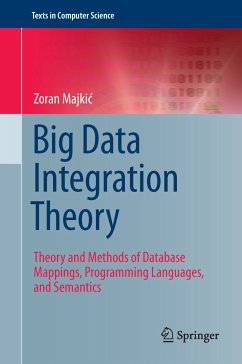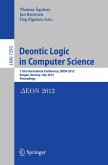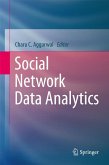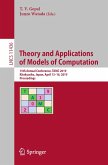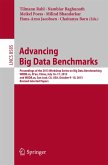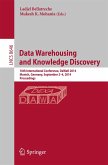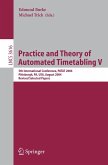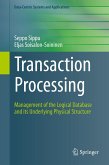The challenges of big data demand a clear theoretical and algebraic framework, extending the standard relational database (RDB) with more powerful features in order to manage the complex schema mappings.
This unique textbook/reference presents a novel approach to database concepts, describing a categorical logic for database schema mapping based on views, within a very general framework for database integration/exchange and peer-to-peer. Issues of database mappings, database programming languages (algebras), and denotational and operational semantics are discussed in depth. An analysis method is also developed that combines techniques from second order logic, data modeling, co-algebras, and functorial categorial semantics.
Topics and features:
This self-contained textbook is ideal for graduate courses on database engineering methods, and can also be used as a supplementary text for courses on co-algebras and category theory. Researchers and software engineers interested in databases and logics will also find the book to be a useful reference.
This unique textbook/reference presents a novel approach to database concepts, describing a categorical logic for database schema mapping based on views, within a very general framework for database integration/exchange and peer-to-peer. Issues of database mappings, database programming languages (algebras), and denotational and operational semantics are discussed in depth. An analysis method is also developed that combines techniques from second order logic, data modeling, co-algebras, and functorial categorial semantics.
Topics and features:
- Provides a concise, formal introduction to logics, (co-)algebras, databases, schema mappings and category theory
- Describes the core concepts of big data integration theory, supported by a number of practical examples
- Examines the computational properties of the DB category, compared to the extensions of Codd's SPRJU relational algebra and structured query language (SQL)
- Defines the abstract computational machine, the categorial RDB machine, able to support all DB computations by SQL embedding
- Presents full operational semantics for database mappings (programs)
- Discusses matching and merging operators (tensors) for databases, universal algebra considerations, and algebraic lattices of the databases
- Explores the relationship of the database weak monoidal topos with respect to intuitionistic logic
This self-contained textbook is ideal for graduate courses on database engineering methods, and can also be used as a supplementary text for courses on co-algebras and category theory. Researchers and software engineers interested in databases and logics will also find the book to be a useful reference.
Dieser Download kann aus rechtlichen Gründen nur mit Rechnungsadresse in A, B, BG, CY, CZ, D, DK, EW, E, FIN, F, GR, HR, H, IRL, I, LT, L, LR, M, NL, PL, P, R, S, SLO, SK ausgeliefert werden.
From the book reviews:
"The author has written a number of papers on data integration theory and this book is a compendium of these papers ... . It would be an ideal companion for a research student working with theoretical database concepts." (M. S. Krishnamoorthy, Computing Reviews, September, 2014)
"The author has written a number of papers on data integration theory and this book is a compendium of these papers ... . It would be an ideal companion for a research student working with theoretical database concepts." (M. S. Krishnamoorthy, Computing Reviews, September, 2014)
"All topics are studied in detail consistently in terms of category theory. ... Each chapter of the book ends with a couple of 'review questions'. Textbooks often provide teachers with supplementary material indicating the correct answer - surely this will also be the case here. Also by 'researchers interested in methods of computer science used in databases and logics, and the original contributions - a category theory applied to databases" will this book be well accepted." (Antonin Riha, zbMATH, Vol. 1325. 68004, 2016)
"The author has written a number of papers on data integration theory and this book is a compendium of these papers ... . It would be an ideal companion for a research student working with theoretical database concepts." (M. S. Krishnamoorthy, Computing Reviews, September, 2014)
"The author has written a number of papers on data integration theory and this book is a compendium of these papers ... . It would be an ideal companion for a research student working with theoretical database concepts." (M. S. Krishnamoorthy, Computing Reviews, September, 2014)

